Can you easily say, "no" to your colleagues or relatives who ask you for favors? For many people, it's a really big challenge. We are often scared of saying, "no" even though it may make things easier for us. By giving into a request, we are just trying to avoid conflict. But this habit often makes us annoyed and forces us to do things we don't want to. Everyone needs to be able to refuse something to other people. Luckily for you, this article will help you acquire this skill.
Here at Bhaskar Health , we have collected 10 recommendations that will help you learn how to say, "no" and still keep a relationship stable.
10. Try to understand why you're saying, "no" to something.
Before you build a relationship with other people, you should understand what is important to you and what isn't. To do this, make a list of people, things, and events that you want to dedicate your time to. Because until you get your priorities straight, you will have difficulty figuring out what to spend your time on and what not to. Otherwise, you always feel conflicted about whether or not you did the right thing.
9. Offer a choice.
This is probably the easiest way to refuse. When you refuse to do someone a favor, offer the person an alternative, or "a consolation prize". For example, if you can't meet a friend tonight and you haven't seen him or her for a long time, promise them to meet up in a week. The most important thing, in this case, is to try to be really useful to the person and not to do something because you feel guilty about it.
8. Show compassion.
If you can't help a person with something, show them that you hear them and understand what they want. Tell them that you understand that they are in a difficult situation, and you wish them luck. This will help the person to feel better and make your refusal easier to swallow.
7. Say, "no" to the request, not to the person.
Don't worry that your refusal will offend the person because you are trying to keep the relationship with them. The fact that you refuse to help only means that you can't help, it's nothing personal. Of course, you should be polite, but you should be firm when saying, "no". This behavior will let the other person understand that you really can't help.
6. Explain the reason.
Not everyone can refuse to do something without explaining the reason. And the person who asks you for a favor expects at least a couple of words from you. You shouldn't give a very long and detailed explanation, just tell them about the circumstances of why you are refusing to help. Maybe you are in a rush to see the doctor or you are too tired and you need to rest, or you don't want to help because of some other reasons. Be honest with the person.
5. Practice saying, "no".
All of your knowledge will only be theoretical unless you start practicing saying, "no" to different people. For starters, you can choose simple situations that have minimal risk. For example, say, "no" a waiter who offers you a dessert in a café.
Or when you are home alone, repeat the word "no" 10 times. This will make you confident in future situations.
4. Add a compliment to the refusal.
Refuse to help someone but turn it into a compliment to the person. For example, "Thanks for remembering me," or "I appreciate that you asked me first." You can wish them good luck as well.
3. Be ready to choose.
It's often hard to say, "no" not because we are afraid of offending people, but because we don't want to lose an interesting opportunity. In a situation like this, a refusal is not just a wasted opportunity but it's also a compromise. Remember this: When we refuse to do something, we agree to do something else. This means you're just choosing one of two possibilities.
2. If they persist, be strong.
Some people are so persistent that they don't let others go before they get what they want. This is mostly true with relatives. In this case, your best course of action is to repeat your answer over and over again.
This doesn't mean you don't have compassion! You can hug them, but don't let your "no" turn into a "maybe" and in the end into a "Yes, of course."
1. Don't take too long to answer.
It is really hard to refuse to do something sometimes. But when you take too long to give an answer and you say, "maybe" and then you say, "no", it isn't much better. In a long-term perspective, a clear refusal is much more polite. Don't try to do too many things at the same time.
Bonus: How to refuse while in a relationship
When someone wants to date you and you don't want to date them, it's better not to start such a relationship just because you feel guilty. There's little chance that this will end well. You will either just waste your time and the time of your partner, or you will be annoyed all the time which will make the relationship toxic for both of you. In this case, honesty really is the best policy. Just say that you are not ready for a relationship at the moment.
No matter what, the choice is up to you. You can either live a life achieving other people's goals and feel weak, or you can have a really interesting life and live in harmony with yourself and others.
How do you refuse to do something you don't want to do? Tell us in the comment section below!


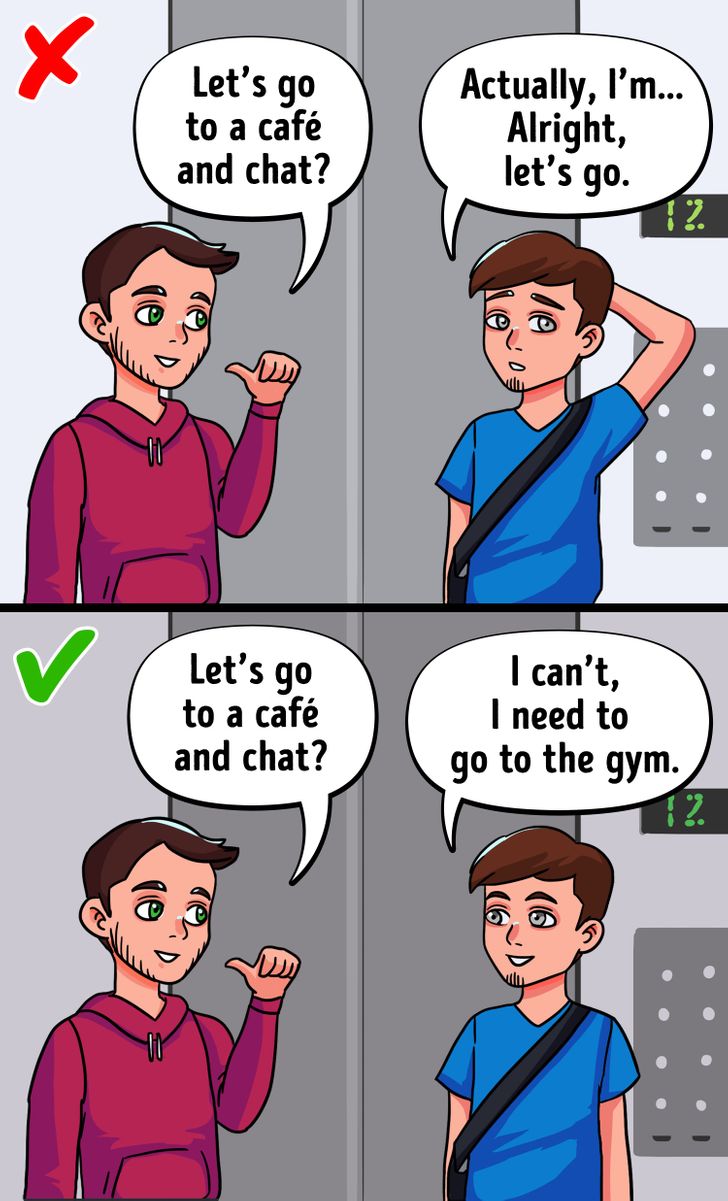
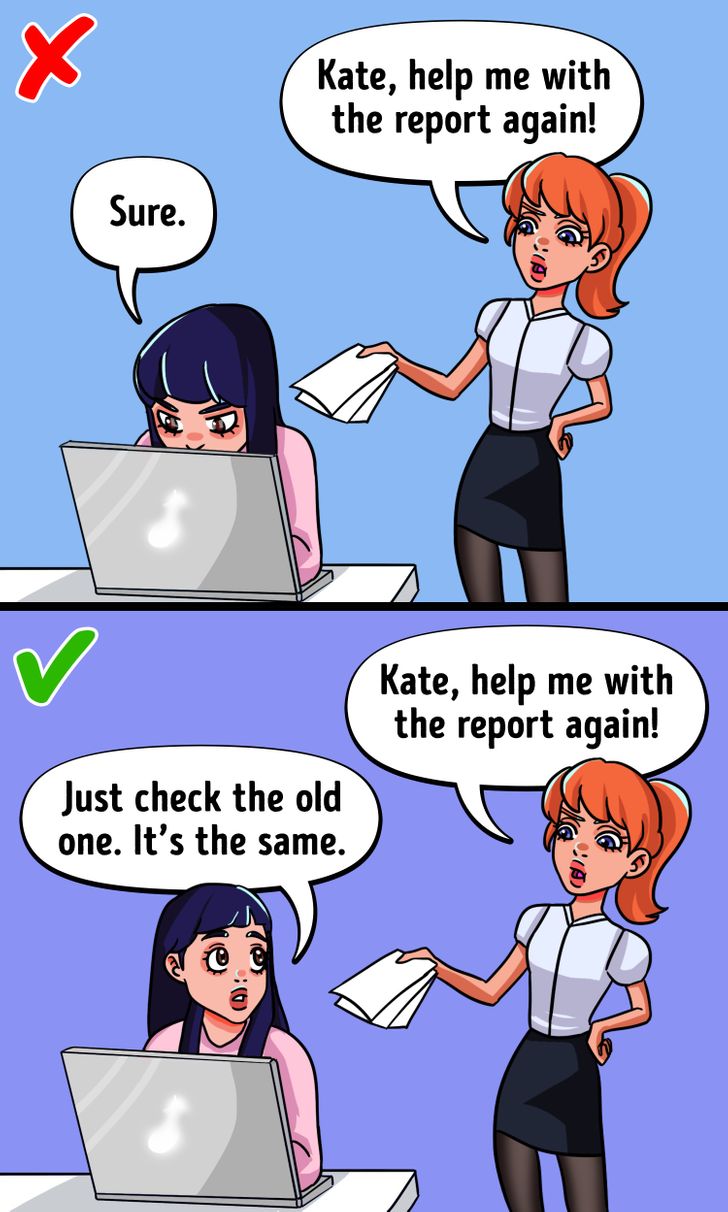
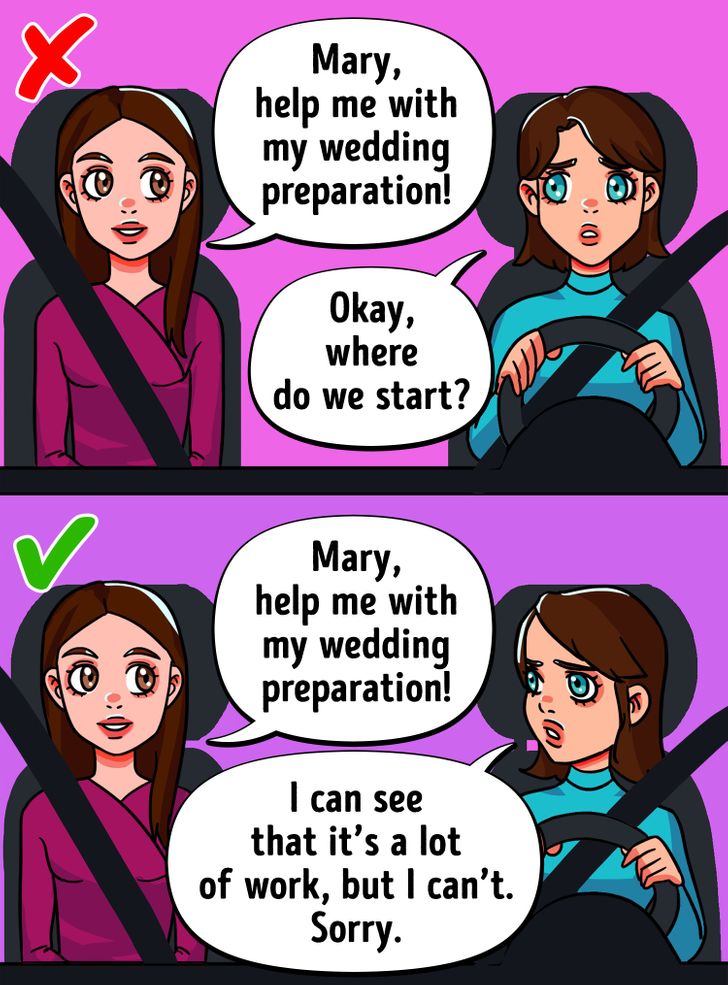
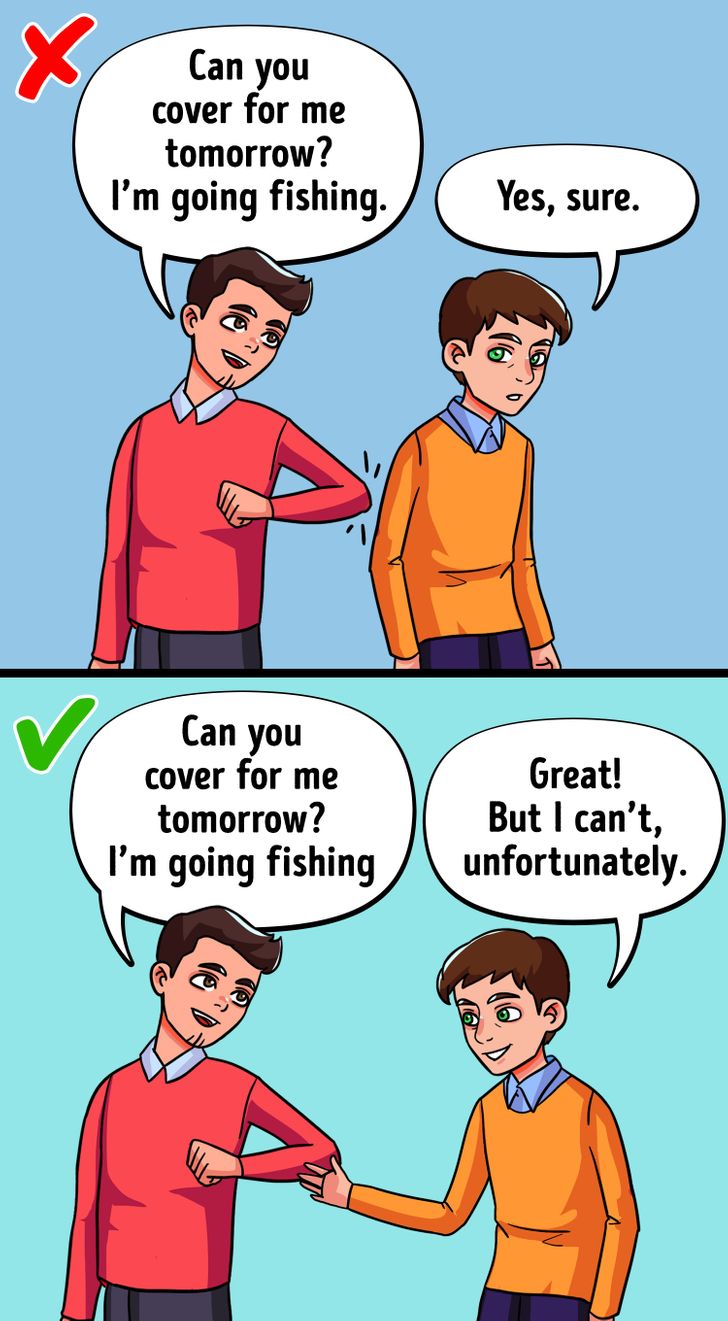
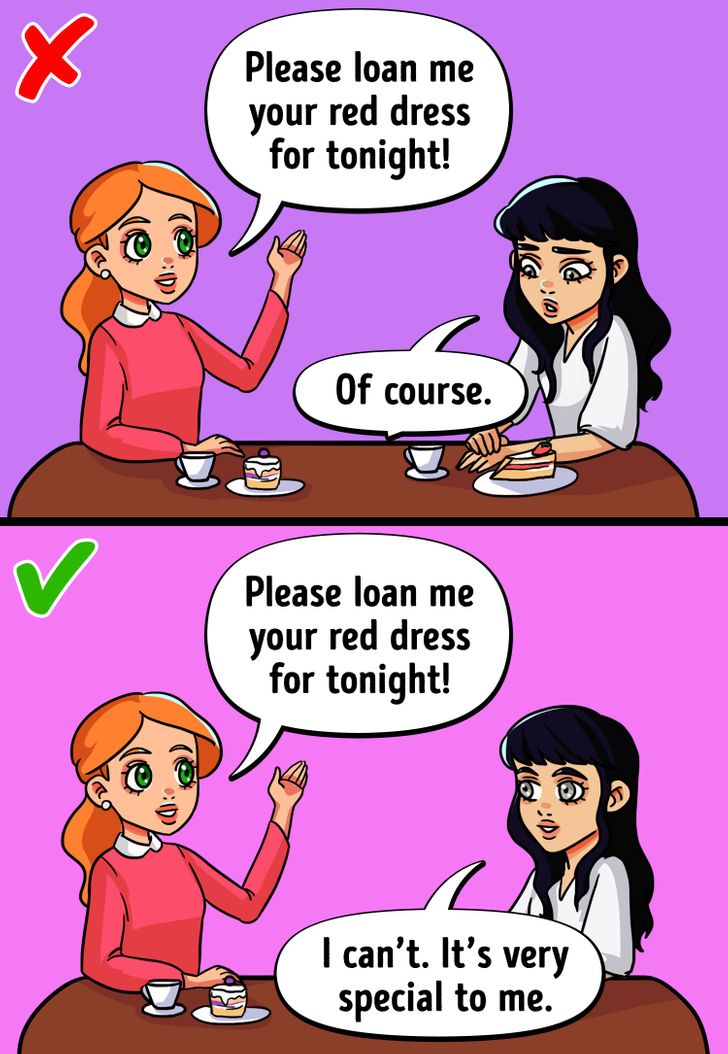
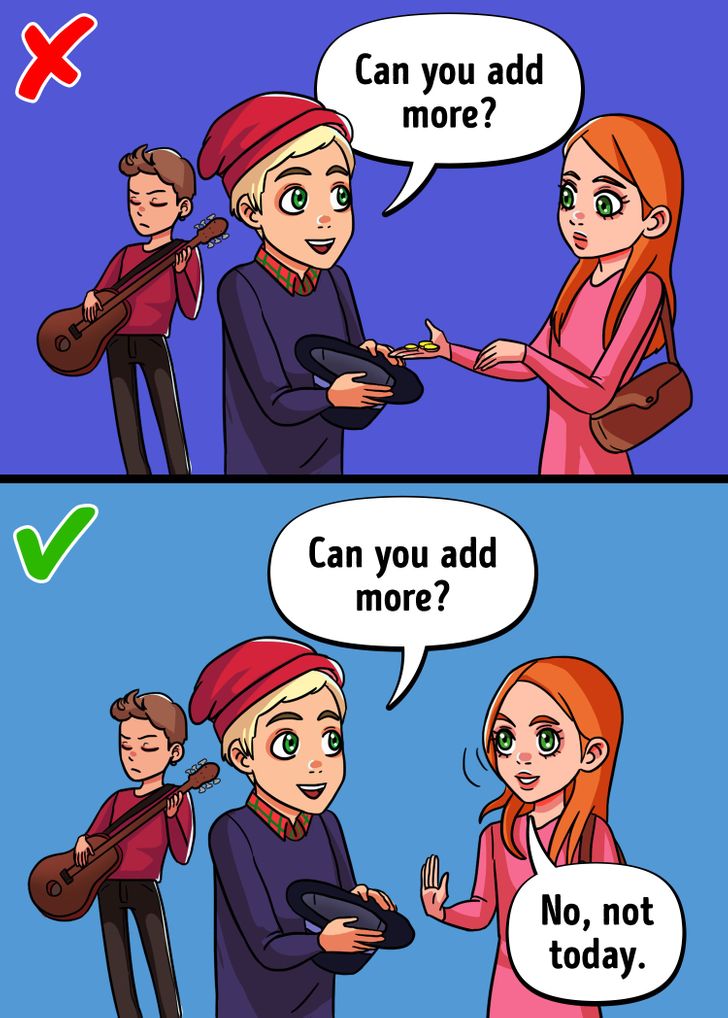


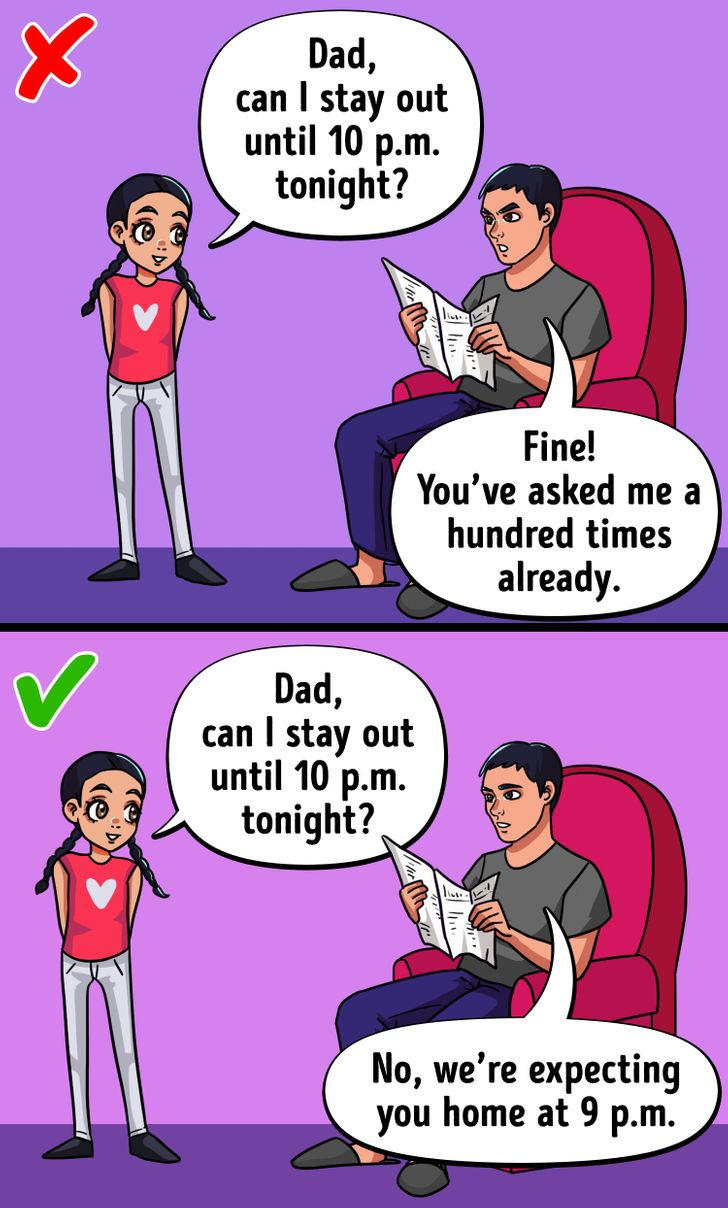
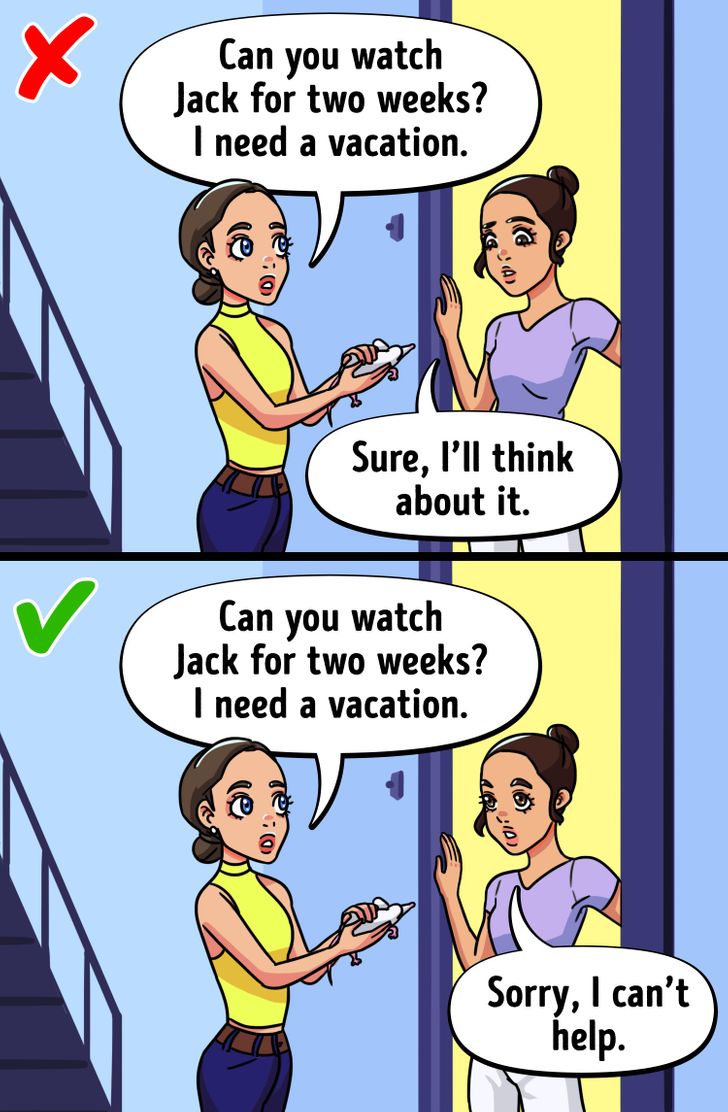
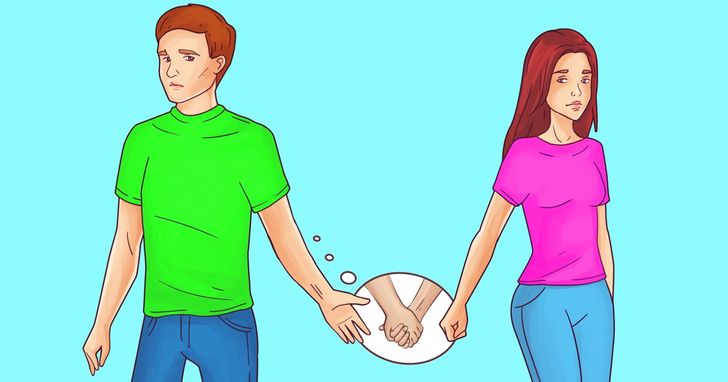
0 Comments